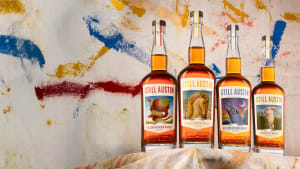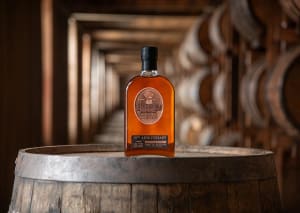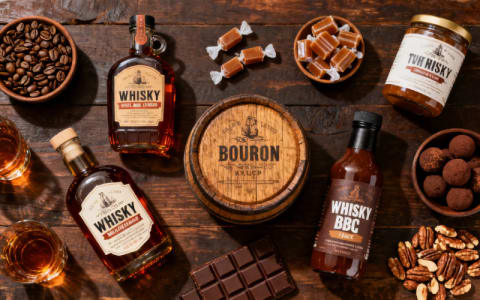In the highly competitive bourbon industry, a new trend is emerging that could revolutionize how distillers differentiate their products: the cultivation of proprietary heirloom corn varieties. With distilleries like Widow Jane and Heaven Hill leading the charge, this innovative approach has the potential to significantly alter the landscape of bourbon production. But is this ambitious endeavor worth the effort, and will it resonate with consumers?
Understanding the Bourbon Framework
To appreciate the significance of this trend, it's essential to understand the stringent regulations governing bourbon production. According to U.S. law, bourbon must be made in the United States and contain at least 51% corn. It must be aged in new charred oak barrels and adhere to specific proof guidelines: it can't be distilled at more than 160 proof, must enter the barrel at no more than 125 proof, and must be bottled at a minimum of 80 proof. These rules leave little room for variation, making it challenging for distillers to stand out.
Enter Proprietary Corn
Historically, bourbon distillers have relied on branding, secret family recipes, and local water sources to differentiate their products. However, a new wave of innovation is taking shape with the introduction of proprietary heirloom corn. This trend is not just another marketing gimmick but a genuine attempt to create unique and high-quality bourbon.
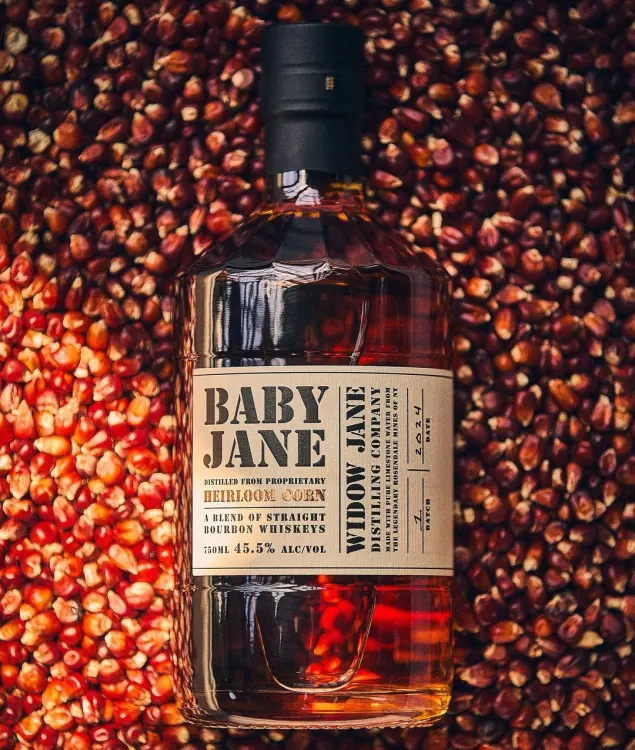
Image credit: Widow Jane
Widow Jane Distillery is at the forefront of this movement with their Baby Jane bourbon, which features a proprietary "Baby Jane" corn. This heirloom corn, developed over a decade, is the result of careful selection, cross-pollination, and human intervention. The goal is to produce a corn variety that enhances the flavor profile of their bourbon, making it distinct from any other on the market.
Heaven Hill Joins the Fray
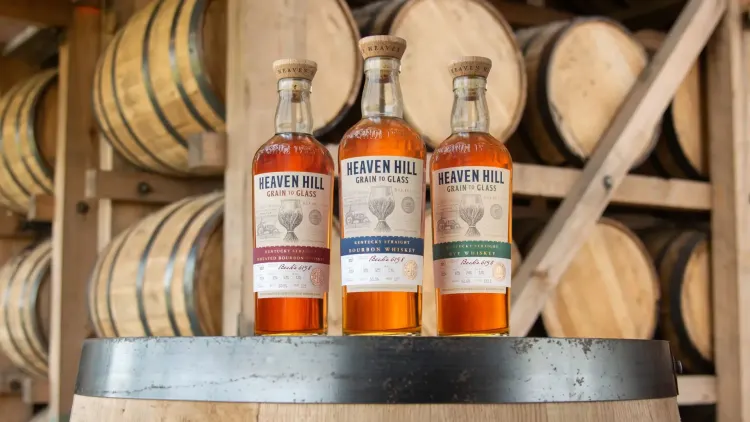
Image credit: Heaven Hill
Hot on the heels of Widow Jane's announcement, Heaven Hill, America's largest independent family-owned distiller, introduced their Grain to Glass series. This initiative began in 2017 when Heaven Hill's Executive Chairman, Max Shapira, partnered with Beck’s Hybrids, an Indiana-based seed company, to develop bespoke corn varieties. These corns were selected for their higher starch content, improved yield, and ability to thrive in Kentucky's soil.
Each year, Heaven Hill's Master Distiller selects a unique corn seed from Beck’s, which is then grown at local farms near the distillery. This careful selection and cultivation process aim to produce bourbon with special attributes that set it apart from the competition.
The Evolution of Bourbon Ingredients
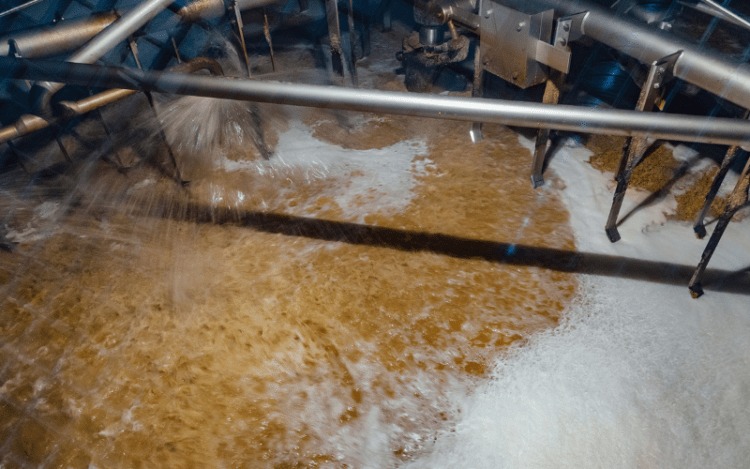
Image credit: Canva/WhiskeyPulse
The concept of proprietary ingredients isn't entirely new to bourbon. Yeast, a crucial component in the fermentation process, has long been treated as a secret ingredient by many distillers. Brands like Four Roses and Heaven Hill have developed and protected specific yeast strains, which play a significant role in defining their bourbon's flavor.
Given the industry's experience with proprietary yeast, it's somewhat surprising that distillers haven't pursued the development of other exclusive ingredients sooner. The shift towards bespoke corn can be seen as a natural progression in an industry that thrives on tradition and innovation.
Why Now?
The bourbon industry has undergone a dramatic transformation over the past two decades. According to the Kentucky Distillers Association, bourbon production has increased by 465% since 2000, making it a $9 billion industry. Kentucky's bourbon inventory alone has grown from 4.6 million barrels in 2009 to a record 12.6 million barrels aging in warehouses at the start of 2023. This boom shows no signs of slowing down, with a $5.4 billion construction boom underway to increase production and storage capacity.
Despite this growth, a 2024 IBISWorld report highlights a critical issue: many bourbon brands compete based on perceived quality and consumer preference rather than product innovation. The introduction of proprietary corn could be the innovation needed to stand out in an increasingly crowded market.
The Potential Impact
The big question remains: will the investment in bespoke grains make a significant impact on the bourbon industry? To sustain its growth, the industry must attract new consumers. While proprietary corn might not be the primary selling point for these new drinkers, it could lead to unique flavor profiles that distinguish certain brands. Additionally, having control over a unique ingredient could provide supply chain advantages.
The success of this trend will likely hinge on the industry’s ability to market these unique grains effectively. Bourbon has a rich tradition of storytelling, and distillers will need to weave the narrative of heirloom corn into their brand’s legacy. If they can do this, the fascination with craftsmanship and innovation may keep consumers engaged.
Conclusion
The development of proprietary heirloom corn varieties represents a bold new direction for the bourbon industry. While the ultimate payoff remains uncertain, this trend underscores the industry's relentless pursuit of differentiation and innovation. By investing in these unique grains, distillers like Widow Jane and Heaven Hill are setting the stage for a new chapter in bourbon’s storied history.
As consumers, we can expect to hear more about heirloom corn and other custom ingredients in the coming years. Whether or not this leads to a significant shift in consumer preferences, the continued evolution and dedication to craftsmanship will ensure that bourbon remains a compelling and dynamic segment of the spirits market.


